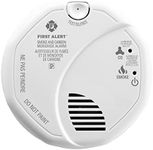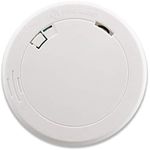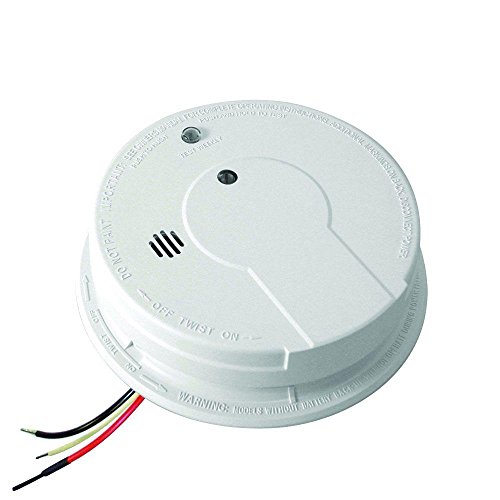Buying Guide for the Best Kidde Smoke Detectors
Choosing the right smoke detector is an important step in keeping your home and loved ones safe. Smoke detectors are designed to alert you early in case of fire, giving you precious time to react. When shopping for a smoke detector, it's important to understand the different features and technologies available so you can select the best fit for your living space and needs. Consider where you will install the detector, the type of fires most common in your area, and any special requirements for your household, such as hearing impairments or interconnected alarms.Sensor TypeThe sensor type refers to the technology the smoke detector uses to sense smoke or fire. The two main types are ionization and photoelectric. Ionization sensors are generally better at detecting fast-flaming fires, while photoelectric sensors are more responsive to slow, smoldering fires. Some detectors combine both types for broader protection. When choosing, think about the most likely fire risks in your home. For the best safety, many experts recommend using both types or a combination unit.
Power SourceSmoke detectors can be powered by replaceable batteries, sealed long-life batteries, or hardwired into your home's electrical system (often with a battery backup). Battery-powered units are easy to install and can be placed anywhere, but require regular battery changes. Sealed battery models offer up to 10 years of use without battery changes. Hardwired detectors are more reliable and can be interconnected, but require installation. Choose the power source that matches your comfort with maintenance and your home's setup.
InterconnectivityInterconnectivity means that when one smoke detector senses smoke, all connected alarms in the home will sound. This feature is especially important in larger homes or multi-story buildings, as it ensures everyone is alerted no matter where the fire starts. Some detectors connect via wires, while others use wireless technology. If you want whole-home coverage, look for models that support interconnectivity and consider how easy it will be to link them in your space.
Additional FeaturesSome smoke detectors come with extra features like carbon monoxide detection, voice alerts, smart home compatibility, or strobe lights for the hearing impaired. These features can add convenience or address specific needs, such as protecting against multiple hazards or ensuring alerts are accessible to everyone. Think about your household's unique requirements when deciding which additional features are worth having.
Maintenance IndicatorsMaintenance indicators include features like low-battery warnings, end-of-life alerts, and test buttons. These help you keep your smoke detector in working order. A clear, easy-to-understand indicator system makes it more likely you'll notice and address issues promptly. If you prefer a low-maintenance option, look for detectors with long-life batteries and clear alerts.

















